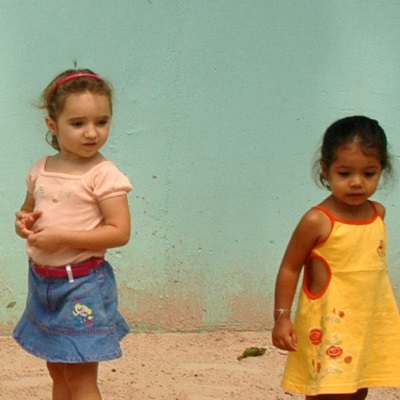 Bullying in preschool is more common than many parents want to believe. Left unchecked, little bullies and victims grow to be big aggressors and victims. Fortunately preschool is an excellent place to address this issue given the high adult to pupil ratio.
Bullying in preschool is more common than many parents want to believe. Left unchecked, little bullies and victims grow to be big aggressors and victims. Fortunately preschool is an excellent place to address this issue given the high adult to pupil ratio.
The term “bullying†refers to persistent negative behavior which is hurtful to another person. For boys, this could look like hitting or kicking a particular child. Girls tend to engage in name calling or exclude another girl from the group. For the bully, it is a way to feel powerful while the victim tends to become withdrawn and isolated. Both victims and perpetrators can learn skills to help with socialization.
Boys who are aggressive tend to be easy to spot. Rough play such as pushing is understandable when a group of boys gets together. It takes time to learn how to share toys and occasionally children need to work things out for themselves. However, if the playing becomes too aggressive, then a teacher can step in and redirect the children. When one child regularly needs to be removed from the group due to aggressive acts, then it is time to review the situation.
Girls playing together can enjoy tea parties and playing house. But when one girl decides that the group should exclude a specific child or engages in name calling, then there is a problem. Why is one child targeting another? In all situations, it is important to address the negative behavior and help the child learn more positive skills.
What is happening in the family? Is there stress in the parents’ relationship? Separation and divorce have a huge impact on a child. Does the child move from one family setting to another where the behavioral expectations are different?
The stable environment of a preschool or daycare can help the child calm down. Maybe an adult is available to give a child in transition more attention and give clear, firm direction regarding behavioral expectations. Reminding a child to “use your words†is helpful especially when the child can role play with an adult. Learning to react appropriately in a calm situation will in time carry over to handling a challenging issue properly. It is important to give the child time to master a new skill and have lots of patience.
Some children struggle to find the language to express what they are feeling. By using photographs of people showing different emotions, a child can learn to recognize their own emotions and later to express them more appropriately.
A child who is targeted by others will benefit from strategies to avoid being picked on. Practicing saying “Stop†and “No†forcefully will help the child gain self confidence when put in a vulnerable situation. Also, learning to walk away when other children are being mean gives the child permission to find other playmates. A teacher might help facilitate play groups between children who can get along.
In preschools, all children need to feel respected and valued. Bullying is preventable.











I am very happy with this info, but I may add my own ideas.
in preschool, You should teach y our child that she or he that to not listen to the bullying and stay away from them, if they DO.
Tell the teacher/ trusted caretaker that your being bullied,
Now if they ” Call you over ” ignore them. and if they come after you like ( Walking over to you ) go to your teacher RIGHT away and tell on him.
Now if YOUR child is bullying make him ( or her )
loose their favorite toy for a few hours, make them not be able to watch anything for a day, do simple stuff and if your teacher calls your about your boy rough or your girl spoiled ask the teacher for a everyday ( Mean or Bad thing for your child when bad give them a like take your shows away for a day. but if they are good give them a treat or something fun! I know this isn’t exactly related to the subject but i thought safety was needed.